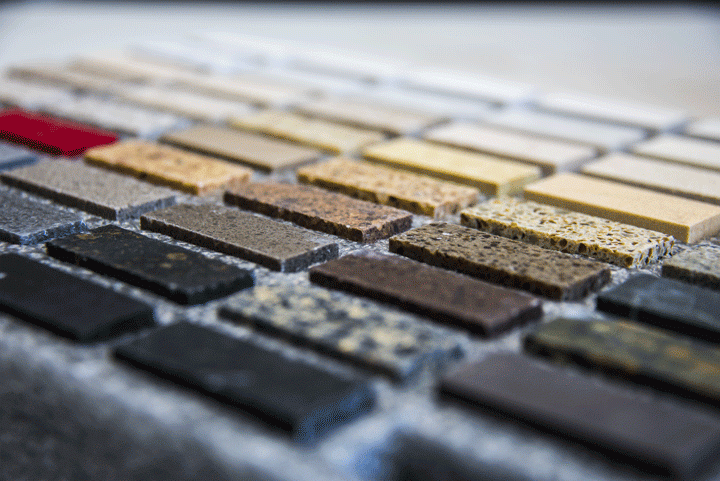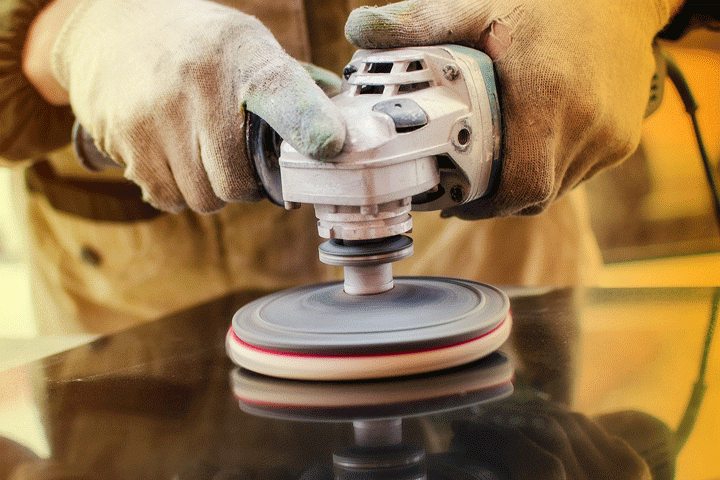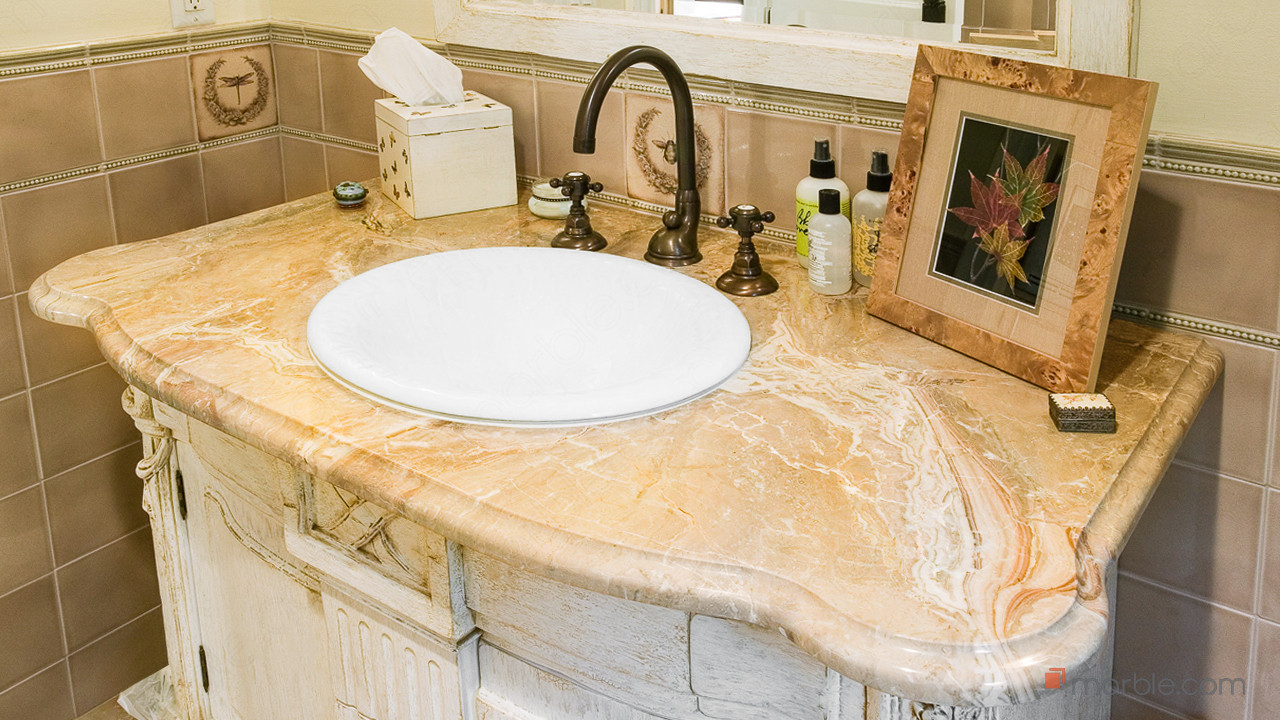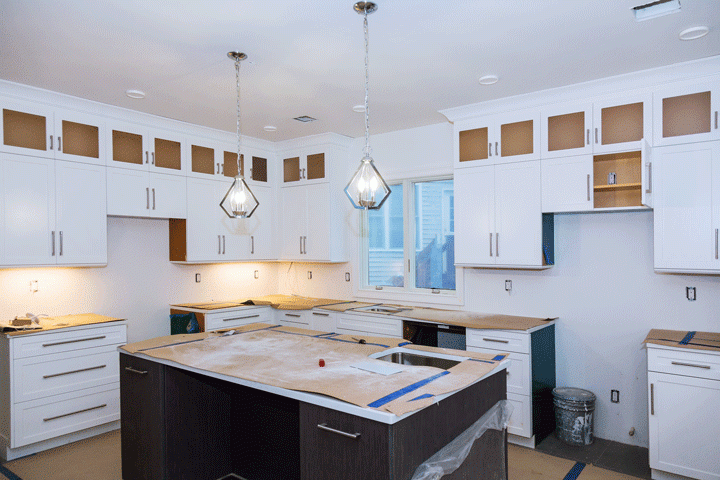Table of Contents
Depending on the material, countertops can find themselves looking worn out after a few years of use. While routine maintenance and care can help keep countertops in good shape for years, there will still come a time when more than just tender loving care will be needed.
The issue then becomes a matter of whether it’s best to simply refinish those old and seasoned countertops or to replace them entirely. Material factors in here as well, but generally speaking, refinishing most countertop materials will extend their life in a significant way.
Let’s explore the process and cost of refinishing countertops.
[get_quote]
Significant Savings

On average, the homeowner who opts for refinishing their counters instead of countertop replacement will save around 60% of the overall cost. And that’s if they go with a professional, which in all reality they should.
A properly done countertop refinishing could extend the life of countertops by 10-15 years, so unless you’re a regular old Bob Vila type, don’t go the DIY route.
A poorly done countertop refinishing, however, can open up your counters to new issues and expose them to more wear and tear as a result.
In addition to a sizable cost savings when compared to countertop replacement, it’s also a major time saver to go the refinishing route. Replacement requires a far greater upheaval and inconveniencing of your time and personal comfort. That said, replacement makes sense if you’re looking to upgrade from faux-granite epoxy counters to legitimate granite counters, but it makes little sense if you’re just going to stick with the same countertop materials, color and all.
Countertop Material Determines Refinishing Process

Natural Stone
When it comes to refinishing or restoring natural stone, it’s definitely a process that has been simplified by newer products. DIY restoration of natural stones like granites or marbles is certainly doable, but if you’re not 100% confident, don’t risk destroying a $5000+ investment to save a few hundred dollars.
Nevertheless, the process of refinishing stone countertops is to grind, hone, polish, and seal. The goal of the grinding stage is to remove a thin layer of stone to aid in the creation of what looks like a new counter. While cleaning and polishing can be done by anyone, it’s easy to understand why a full restoration project of stone countertops requires professional help. The grinding and honing steps are skilled steps and any error can be costly.
That said, once a stone counter is sanded, honed, polished, and sealed, it’s good for at least a decade. Again, routine maintenance is crucial to extending its life to and beyond the decade mark, but it’s easily obtainable with thoughtful care.
Laminate
One of the most affordable countertop materials, laminate is refinished quite simplistically; essentially glue a new laminate layer over the old one. Obviously, you can only do this so many times (realistically twice) before you’re going to need to replace those counters. There are also paint kits for laminate countertops that allow homeowners to create a faux-marble or faux-granite look.
Wood
Refinishing wood countertops is similar to refinishing wood floors. Sand and finish. If the floors aren’t too beat up, renting a buffer and applying a polyurethane finish is often enough to bring them back to their prior glory.
Epoxy
Perhaps the easiest, or at least the fewest steps, refinishing an epoxy counter top is simply a matter of adding a new layer of epoxy to the surface. Epoxies can be prone to heat or acid damage, though, so even a refinished epoxy counter requires a mindful owner (and perhaps some trivets or other items meant to protect the counter from heat).
DIY or Contractor

The choice to do-it-yourself or to hire a professional contractor, as far as it relates to any countertop restoration or refinishing project, boils down to a few points of consideration.
First of all, do you have the experience, competency, or skillset to do the job? If you do, then it’s a matter of whether or not you have the time needed to complete the task without rushing it.
[get_quote]
The third consideration, which could push its way to the primary consideration, is budget. If you’re not able to afford a contractor, DIY might be the only option you have. However, a simple cost-risk analysis will help you make an informed decision. Sometimes it might just be better to delay a home improvement project like refinishing countertops in order to save the money to have them done right.
Other times, and dependent on your own skills and means, rolling up your sleeves and getting down to it is always on the table when it relates to improving the overall aesthetic of a room or your home.
Ultimately, the process of refinishing countertops is not one to stress over too much. There are DIY options and if that isn’t your thing, hiring a contractor will cost anywhere from $250-700 depending on how much counter space needs to be refinished.
Considering the long-term value of a refinished countertop, and the thousands of dollars it costs to install new counters, shelling out a few hundred for years of use is a fairly sound deal. Then again, so is being handy enough to only buy the materials and supply the labor yourself. Either way, the end result (beautifully restored countertops) is completely worth it, whether you contract out or do-it-yourself.
















 The article helped me immensely
The article helped me immensely
 I’m now more informed on the subject
I’m now more informed on the subject
 I have questions about Marble.com
I have questions about Marble.com
 The article was not accurate at all
The article was not accurate at all
 There is a serious lack of information
There is a serious lack of information
 I have questions about Marble.com
I have questions about Marble.com